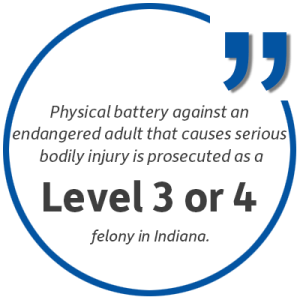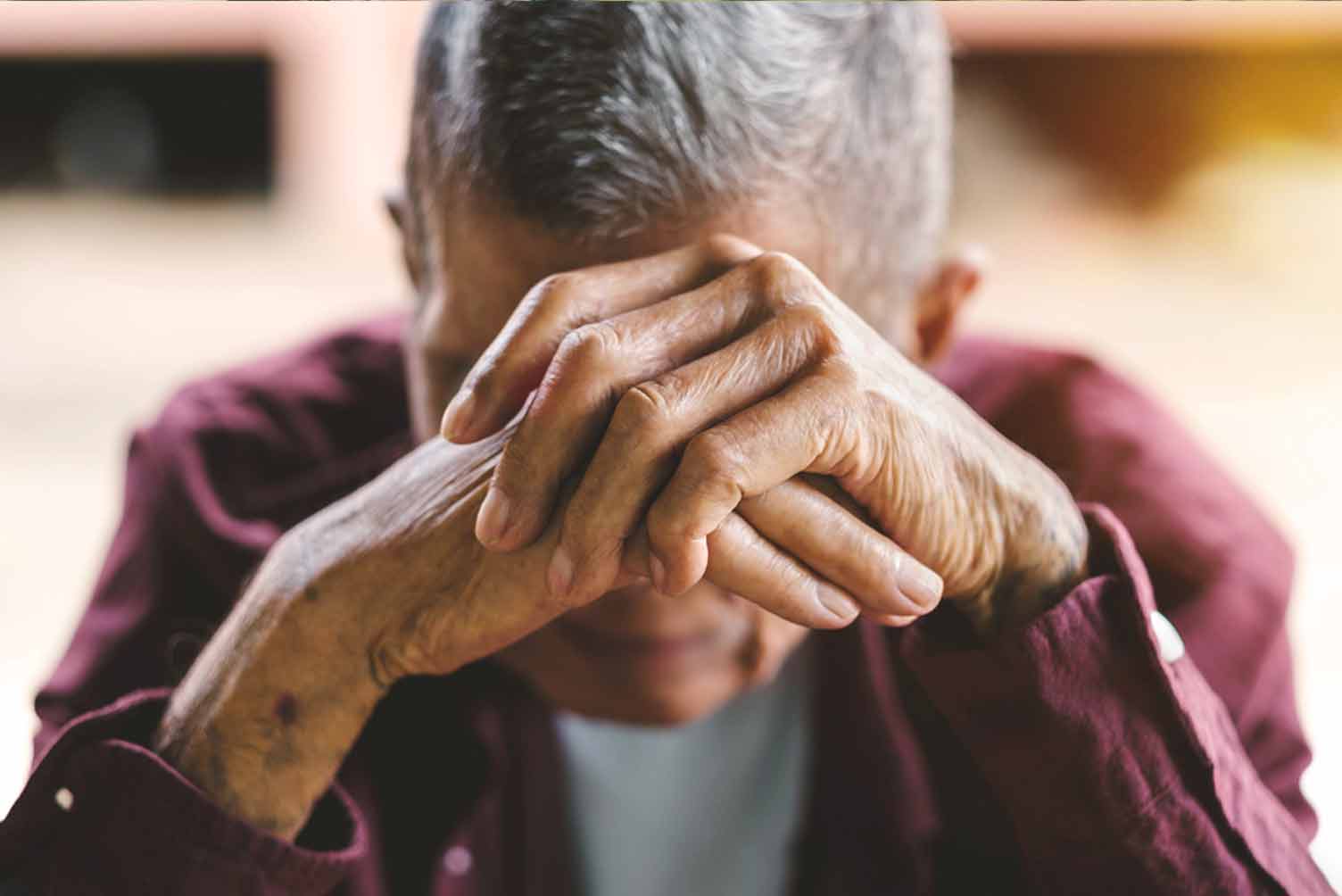As our population continues to age, the mistreatment and exploitation of elderly adults has become a growing and disturbing issue across the United States, including here in Indiana. Elder abuse can take many different forms – physical abuse, emotional abuse, sexual abuse, financial exploitation, neglect, and more.

Tragically, elders are often victimized by the very people they depend on and trust the most to provide care – family members, caregivers, and staff at nursing homes or assisted living facilities. When this abuse occurs, it’s a violation of the basic rights and dignity of our oldest and most vulnerable citizens.
To combat elder abuse and protect seniors, Indiana has instituted a comprehensive set of elder abuse laws that define the different types of mistreatment, establish reporting requirements, and outline penalties for offenders. The public must understand these laws and their rights when it comes to elderly abuse.
What Are the Elder Abuse Laws in Indiana?
According to the Indiana Family and Social Services Administration (FSSA), the legal definitions of elder abuse include:
1. Physical Abuse: Intentionally touching an endangered adult in a rude, angry or insolent manner, or placing bodily fluid or waste on them in a rude manner.
2. Sexual Abuse: Any non-consensual sexual conduct or activity with an endangered adult.
3. Emotional Abuse: Intentionally inflicting mental anguish through verbal or non-verbal acts, such as insults, threats, humiliation, harassment, etc.
4. Financial Exploitation: Illegally misusing or taking an endangered adult’s money, property or other assets through deception or coercion.
5. Neglect: Failing to provide an endangered adult with necessary care, shelter, food, protection, or medical services.
An “endangered adult” under these elderly abuse laws generally means anyone 18 or older who is mentally or physically incapacitated and incapable of managing their own care or finances.
Any knowing or intentional act that causes harm, mistreatment, or an intentional failure to provide proper care could potentially constitute elder abuse if the victim was an endangered adult.
Mandatory Reporting Requirements for Suspected Abuse
Indiana law mandates that any person who has reason to believe an endangered adult is the victim of battery, neglect, or exploitation must report it immediately to law enforcement or the state’s Adult Protective Services (APS) hotline at 1-800-992-6978.
Those classified as “mandatory reporters” under the statute with an obligation to report suspicions of abuse include nursing home staff, healthcare professionals, police officers, social workers, and many others. Failure to report could result in criminal charges.
However, the law also provides civil and criminal liability protections for any person who makes a report of suspected abuse in good faith, even if the allegations prove to be unfounded after an investigation.
Both professionals working with elders as well as ordinary citizens are compelled by law to speak up any time they have credible reason to suspect elder abuse may be occurring.
Criminal Penalties for Abusing Endangered Adults

In addition to the moral reprehensibility of elder abuse, Indiana law also treats these acts as serious crimes with harsh penalties depending on the severity of conduct and harm inflicted.
Physical battery against an endangered adult that causes serious bodily injury is prosecuted as a Level 3 or Level 4 felony in Indiana, carrying potential prison sentences of 3-16 years as well as substantial fines.
Lower-level battery not causing serious injury against an endangered adult is a Level 5 or Level 6 felony, which can still mean up to 6 years in prison and hefty fines.
Neglect and financial exploitation convictions also result in felony crimes with the possibility of years behind bars and thousands in fines.
In Indiana, subjecting the elderly to abuse has harsh criminal consequences aimed at punishing and deterring these acts. Violators face serious risks.
Both Criminal and Civil Action Possible for Victims
Beyond prosecution, elders who suffer abuse or their families may also pursue civil lawsuits against perpetrators and any entities that employed or enabled them, such as nursing homes or care facilities where abuse occurred.
Civil damages could cover medical costs, relocation fees, mental anguish, punitive damages for egregious conduct, legal fees, and more. Nursing homes may be sued for failing to properly screen staff, not addressing reported issues, violating care standards, and other lapses that enabled abuse.
Both criminal charges by prosecutors and private civil lawsuits are means for holding abusers accountable and obtaining justice for vulnerable elderly victims.
Trust Crossen Law Firm with Your Elder Abuse Case
If you or a loved one suffered abuse at the hands of a trusted caregiver, facility staff member, or anyone else, reach out to an experienced elder abuse lawyer at Crossen Law Firm right away to explore your legal rights and options. We provide free consultations to review suspected cases of nursing home neglect, financial exploitation, or other mistreatment and can advise you of the next steps.
No one should have to endure the trauma of elder abuse, which is a scourge on society that often targets those least able to advocate and defend themselves. Speaking up and taking legal action is crucial to protecting our elders, getting them the care they deserve, and deterring future abuse going forward. Call our elder abuse law firm at 317-401-8626 or contact us online to set up your free consultation.

 317-401-8626
317-401-8626 
.jpg)